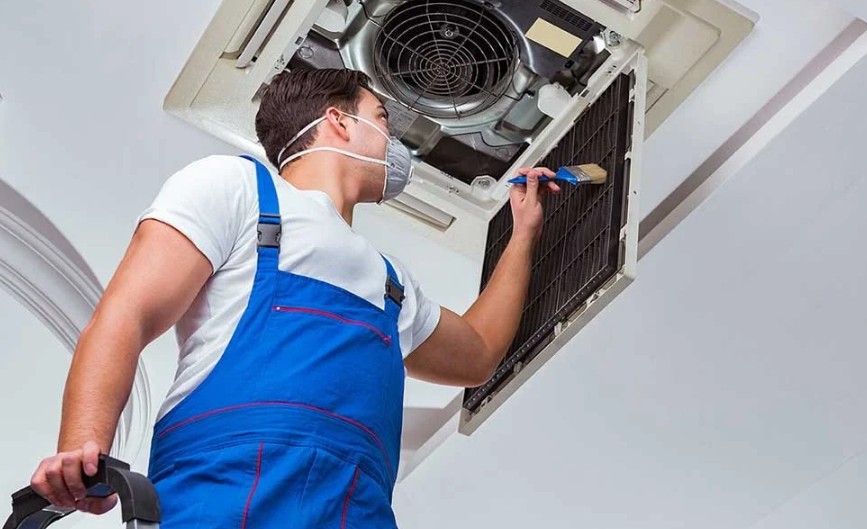
How HVAC Systems Improve Indoor Air Quality
Maintaining a healthy home or commercial space involves more than just cleanliness—it begins with the air you breathe. In a region like St. George, Utah, where temperature fluctuations and dust are common, having a reliable and efficient HVAC system is crucial not only for comfort but also for air quality. Whether you’re a homeowner, property manager, or commercial building owner, investing in a well-maintained HVAC in St George, Utah, system can significantly improve indoor air quality and support long-term wellness.
The Link Between HVAC and Air Quality
Heating, Ventilation, and Air Conditioning (HVAC) systems are designed to regulate indoor climate, but their role extends far beyond temperature control. HVAC systems help filter out pollutants, allergens, and moisture, all of which directly affect the air quality inside a building.
An effective St George HVAC system draws in outdoor air, conditions it, and circulates it through high-efficiency filters. This process removes common contaminants such as dust mites, pollen, pet dander, mold spores, and volatile organic compounds (VOCs) that can trigger respiratory issues or worsen allergies.
Key Components That Enhance Air Quality
Understanding the components of an HVAC system can help you see how they contribute to cleaner indoor air:
1. Air Filters
The first line of defense, air filters trap dust, pollen, and other airborne particles. For optimal indoor air quality, high-efficiency particulate air (HEPA) filters or MERV-rated filters (Minimum Efficiency Reporting Value) are recommended. Regular filter replacement is essential—dirty filters not only reduce system efficiency but also allow pollutants to recirculate.
2. Ventilation
Proper ventilation is critical in removing stale indoor air and bringing in fresh air. In tightly sealed buildings, mechanical ventilation ensures that fresh air continues to circulate. A well-designed HVAC St George system balances indoor humidity, removes excess carbon dioxide, and keeps moisture levels in check—all vital for preventing mold growth and maintaining healthy air.
3. Dehumidifiers and Humidifiers
The right humidity level (ideally between 30% and 50%) is vital for health and comfort. HVAC systems equipped with dehumidifiers help control moisture during humid months, preventing mold and bacteria growth. In drier seasons, humidifiers can be integrated to prevent the air from becoming too dry, which can irritate the respiratory system.
4. Air Purification Add-ons
Advanced St George HVAC systems may include UV lights or ionization systems that neutralize bacteria, viruses, and other airborne microbes. These technologies add another layer of protection and are especially beneficial in medical, commercial, or high-occupancy settings.
Maintenance Matters
Routine maintenance is one of the most overlooked but effective ways to ensure your HVAC system continues to support good air quality. Dirty coils, clogged filters, or leaky ducts can harbor and circulate pollutants. Seasonal inspections, timely filter changes, and cleaning ductwork can all extend the system’s life while keeping your air clean.
Health and Productivity Benefits
Cleaner air leads to more than fewer allergies—it boosts productivity, sleep quality, and overall well-being. For commercial property owners, good air quality can mean lower absenteeism and higher employee satisfaction. For families, it creates a safer and more comfortable living environment, especially for children, seniors, and those with respiratory conditions.
In places like St. George, Utah, where seasonal dust and allergens are a concern, having an optimized HVAC system is one of the best investments you can make for long-term health and comfort. Whether you’re managing a business facility or maintaining a home, a modern, well-maintained HVAC St George Utah system will not only regulate temperature but actively purify and protect the air you breathe every day.
